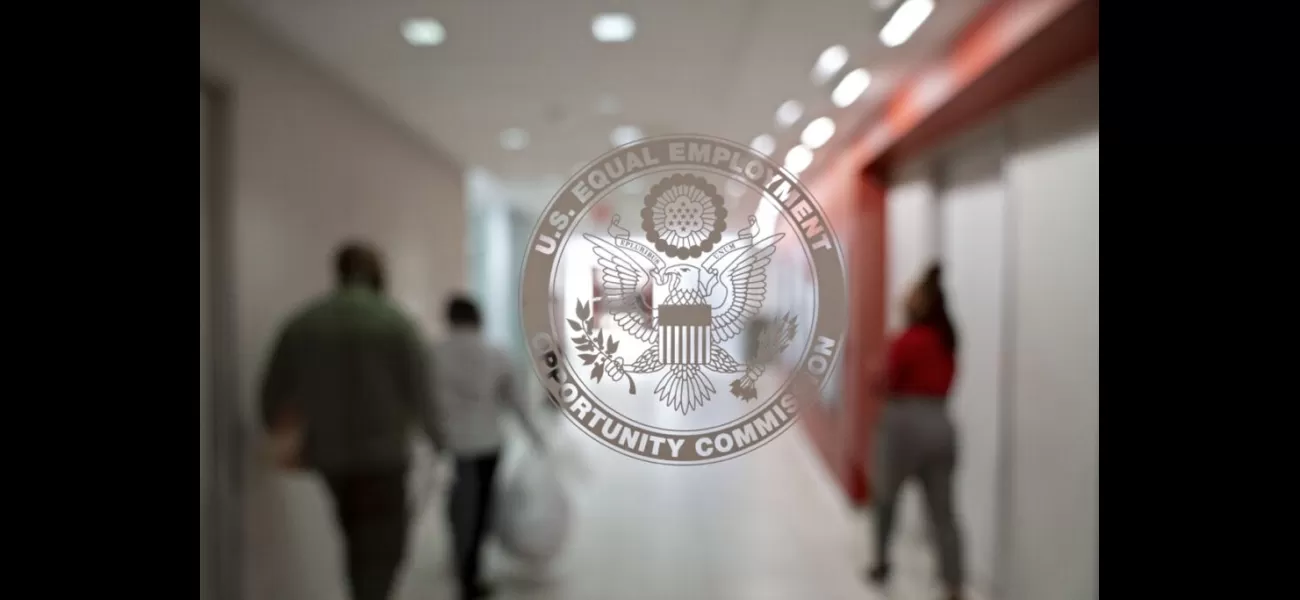The EEOC has updated its law to include protection for pronouns, bathroom usage, and abortion after 25 years.
New guidelines, released on Apr. 29 after 25 years, are now in effect.
May 3rd 2024.

The U.S. Equal Employment Opportunity Commission made a significant announcement, revealing new protections against discrimination. These protections extend to include pronouns, bathroom usage, and reproductive rights for employees across the nation.
One of the major changes outlined in the updated guidelines, released on April 29th, is the recognition of transgender workers' preferred pronouns. Employers who refuse to use these pronouns or prohibit employees from using the corresponding bathrooms could be charged with unlawful harassment under federal anti-discrimination laws. This is a groundbreaking step, as it marks the first time in 25 years that these guidelines have been revised.
The EEOC's new guidance also addresses the issue of virtual work environments. The agency states that any discriminatory behavior, such as making racist or sexist comments during virtual meetings, can contribute to a hostile work environment and will not be tolerated. Additionally, the guidelines make it clear that discrimination based on an employee's decision to have an abortion or use contraception is a form of sex discrimination.
This move by the EEOC is a powerful demonstration of their commitment to enforcing anti-discrimination laws, even though these guidelines are not legally binding. They serve as an addition to the existing legal standards that protect workers from harassment based on characteristics such as race, religion, and sex. According to EEOC Chair Charlotte A. Burrows, "We felt we really needed to lay out the contours of the law and where it stands."
Burrows also emphasized the seriousness of workplace harassment, both in-person and online, stating that it remains a prevalent issue in American workplaces. She believes that the updated guidance provides a comprehensive resource for preventing and addressing harassment, while also clarifying recent developments in the law. However, the approval vote for these changes was not unanimous, with Republican Commissioners Andrea Lucas and Keith Sonderling providing dissenting votes. Appointed by former President Donald Trump, Lucas and other conservatives have voiced their disagreement with the guidance.
Lucas, in particular, expressed concerns that the new updates could lead to the elimination of single-sex bathrooms and facilities used for showering, dressing, and sleeping. She also believes that it could increase the risk of harassment and assault for women. "Biological sex is real, and it matters. Sex is binary - male and female - and is immutable," she stated.
The updated guidelines have also faced criticism from outside the EEOC, including Education and the Workforce Committee Chairwoman Rep. Virginia Foxx. She believes that the agency has "detached itself from reality" and accused them of catering to "leftist activists" rather than focusing on protecting workers. "File this away as another item in the long list of failures spearheaded by this agency," Foxx said.
These changes have been in the works for several years, with the initial proposal being made in January 2017 during the beginning of former President Trump's term and the emergence of the #MeToo movement. However, they were not finalized during his time in office. The need for these updates is evident, as between 2016 and 2023, more than one-third of the thousands of worker complaints received by the EEOC involved allegations of harassment.
The agency has also been actively pursuing lawsuits against companies that have been accused of discriminatory behavior. This includes popular convenience store Sheetz, which was accused of discriminating against Black, Native American, and ethnic job applicants by automatically ruling out potential employees based on their criminal history. Walmart, Inc. was also charged with failing to address severe sexual harassment of female employees by a manager at one of their West Virginia stores. Additionally, Tesla is accused of ignoring complaints of racist harassment against Black workers at their assembly plant in California. Both companies have denied any wrongdoing.
One of the major changes outlined in the updated guidelines, released on April 29th, is the recognition of transgender workers' preferred pronouns. Employers who refuse to use these pronouns or prohibit employees from using the corresponding bathrooms could be charged with unlawful harassment under federal anti-discrimination laws. This is a groundbreaking step, as it marks the first time in 25 years that these guidelines have been revised.
The EEOC's new guidance also addresses the issue of virtual work environments. The agency states that any discriminatory behavior, such as making racist or sexist comments during virtual meetings, can contribute to a hostile work environment and will not be tolerated. Additionally, the guidelines make it clear that discrimination based on an employee's decision to have an abortion or use contraception is a form of sex discrimination.
This move by the EEOC is a powerful demonstration of their commitment to enforcing anti-discrimination laws, even though these guidelines are not legally binding. They serve as an addition to the existing legal standards that protect workers from harassment based on characteristics such as race, religion, and sex. According to EEOC Chair Charlotte A. Burrows, "We felt we really needed to lay out the contours of the law and where it stands."
Burrows also emphasized the seriousness of workplace harassment, both in-person and online, stating that it remains a prevalent issue in American workplaces. She believes that the updated guidance provides a comprehensive resource for preventing and addressing harassment, while also clarifying recent developments in the law. However, the approval vote for these changes was not unanimous, with Republican Commissioners Andrea Lucas and Keith Sonderling providing dissenting votes. Appointed by former President Donald Trump, Lucas and other conservatives have voiced their disagreement with the guidance.
Lucas, in particular, expressed concerns that the new updates could lead to the elimination of single-sex bathrooms and facilities used for showering, dressing, and sleeping. She also believes that it could increase the risk of harassment and assault for women. "Biological sex is real, and it matters. Sex is binary - male and female - and is immutable," she stated.
The updated guidelines have also faced criticism from outside the EEOC, including Education and the Workforce Committee Chairwoman Rep. Virginia Foxx. She believes that the agency has "detached itself from reality" and accused them of catering to "leftist activists" rather than focusing on protecting workers. "File this away as another item in the long list of failures spearheaded by this agency," Foxx said.
These changes have been in the works for several years, with the initial proposal being made in January 2017 during the beginning of former President Trump's term and the emergence of the #MeToo movement. However, they were not finalized during his time in office. The need for these updates is evident, as between 2016 and 2023, more than one-third of the thousands of worker complaints received by the EEOC involved allegations of harassment.
The agency has also been actively pursuing lawsuits against companies that have been accused of discriminatory behavior. This includes popular convenience store Sheetz, which was accused of discriminating against Black, Native American, and ethnic job applicants by automatically ruling out potential employees based on their criminal history. Walmart, Inc. was also charged with failing to address severe sexual harassment of female employees by a manager at one of their West Virginia stores. Additionally, Tesla is accused of ignoring complaints of racist harassment against Black workers at their assembly plant in California. Both companies have denied any wrongdoing.
[This article has been trending online recently and has been generated with AI. Your feed is customized.]
[Generative AI is experimental.]
0
0
Submit Comment





